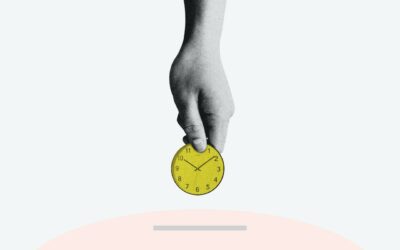Have you had any blow outs recently? With yourself, something, or someone?
Not the ones where you go into a hair salon and have them blow out your hair (which you can’t do now anyway).
The personal kinds of blow outs. The ones where you have a temporary meltdown in your relationship with yourself, something, or someone. They don’t have to be big blow outs to matter. Small ones can add up.
Now more than ever we are at risk for these kinds of blow outs. The COVID induced fog of uncertainty can have a slow and pernicious impact that becomes apparent when small emotional moments risk turning, unnecessarily, into bigger emotional moments that can drag on.
Why is uncertainty such a problem for us now? Because uncertainty is certain for now, with no end in sight.
In the pre COVID era, when we were living life and pursuing plans and goals, our brains had been producing dopamine and norepinephrine together. Dopamine is the molecule of desire that motivates us to pursue plans and goals. Norepinephrine is released in concert with dopamine and it is the molecule that gets you excited and activated to pursue the goal. Dopamine makes you motivated, norepinephrine gets you activated.
Now, in the COVID era, we are stuck in a sort of limbo and for many of us our pursuit of rewards and goals has been snuffed out, so the dopamine is gone. But the certainty of uncertainty creates real stress (humans love certainty) and this releases norepinephrine in the brain. Now what felt like excitement and activation feels like anxiety and agitation. In summary: dopamine + norepinephrine = enjoyable pursuit, norepinephrine alone = anxiety and agitation.
The other day I was on the phone with my son. He casually noted, almost in passing, that he and his wife had two “minor blow outs” that day. A little more conversation made it clear how much these impacted them.
It reminded me of a medium “blow out” I had with my wife a few days ago. The two of us had joined the ranks of the “lets clean out the house during this pandemic” tribe. We have 30 years and 6 kids worth of stuff to unwind.
We have a bookshelf in a hidden hallway downstairs that is filled with my books on photography and languages and a raft of old children’s books, many of them read to our kids a million times. Our kids are all grown up, so they linger on the shelves as powerful and poignant mementos of a precious time gone by in our fortunate lives.
My wife had told me to deal with my books as I saw fit and that she would deal with the rest on her terms. I dealt with mine. But then I had the idea that I could take out the children’s books, organize them in piles, and then she could go through them at her leisure and decide which ones to keep and which ones to give away.
It seemed to me that I was being helpful and proactive. It seemed otherwise to my wife. It turned out not to be one of the better ideas I had that day. Let’s triangulate what the three worlds – ours, her’s, and mine – looked like.
Our families mental world: the four of us in the house together all the time with a COVID induced fog of malaise clouding our mental mangrove. This fog of malaise has settled in around everyone I know. Its real name is uncertainty, and uncertainty can certainly make our emotional life uncertain.
My mental world: keep the clean out going (think dopamine and norepinephrine), give the books away to someone who can use them, keep a few for memories and nostalgia. Stay on task, keep busy (I admit I love the combo of dopamine and norepinephrine more than Ben and Jerry’s chocolate peanut butter swirl).
My wife’s mental world: leave the books alone, putting them out is akin to assigning her a task, deep attachment to many of the books and not emotionally ready to contend with the very emotional process of giving them away, especially with the struggle to see clearly in the COVID fog of uncertainty.
When she saw the neat stacks of books she took me aside and informed me that she was “not happy.” She was really pissed. I felt my temperature rising and I started to feel defensive. Thoughts like “whats the big deal, go through them whenever you want, I can’t believe you are making such a big deal about this” were pounding at the door of my mouth to get out.
The juggernaut like urge to double down and insist that I was right was so strong! But I knew if I doubled down that the COVID fog of malaise would turn into an evening thunderstorm.
It is in moments like these where the “street” value of a meditation practice shines.
First I opted to grab the emergency brake on my speeding emotional train, pull hard, stop, open the window, take a breath, and survey the emotional landscape.
Next I pulled out one of my favorite mental gardening tools – the Pain x Resistance = Suffering formula. If I resisted and persisted in my “rightness”, not only would I suffer (continued irritation and disconnection from my wife) but she would also suffer as would our daughters who would be stuck under our emotional rainstorm without an umbrella.
Third I gave myself a little self-compassion. I acknowledged, out loud (but softly) to myself (in a matter of fact way), that I was irritated but my intentions were good and that I was just trying to have some sense of purpose and control in the COVID fog of uncertainty. Totally understandable. Perhaps I got a little overzealous when I shouldn’t have, but it happens to all of us. I committed to trying to be more mindful of others next time before executing on something.
Fourth, I moved to fix the problem by immediately putting the books back on the shelf.
But more was needed. My wife was still pissed off.
Sam Harris, in a wonderful conversation with Leo Babauta on his Waking Up app, gave a great definition of what wisdom means to him (paraphrased) – the ability to notice the causes of psychological suffering, to spot where they are unnecessary, and then to stop doing those things at the level of your attention or behavior that are producing needless suffering for yourself or others (think complaining, judging others, self-criticism, trying to control others – to name a few).
Finally, after a few minutes of looking out my emotional train window, some breaths and reflection, I went upstairs and said to my wife “I’m sorry. I shouldn’t have taken the books out. You were right,” and kissed her. I can’t say she gave me the warmest kiss ever, but 5 minutes later we were all back to hanging out with the emotional sun shining again.
The rest of the night was great. To top it all off, I felt grateful for having the skills to navigate the fog without banging my head against a tree.
P.S. For a great discussion of the biochemistry of dopamine in the brain and specific scientific strategies to deal with these times, check out podcast episodes 571 and 586 on the James Altucher podcast with Dr. Andrew Huberman.




0 Comments